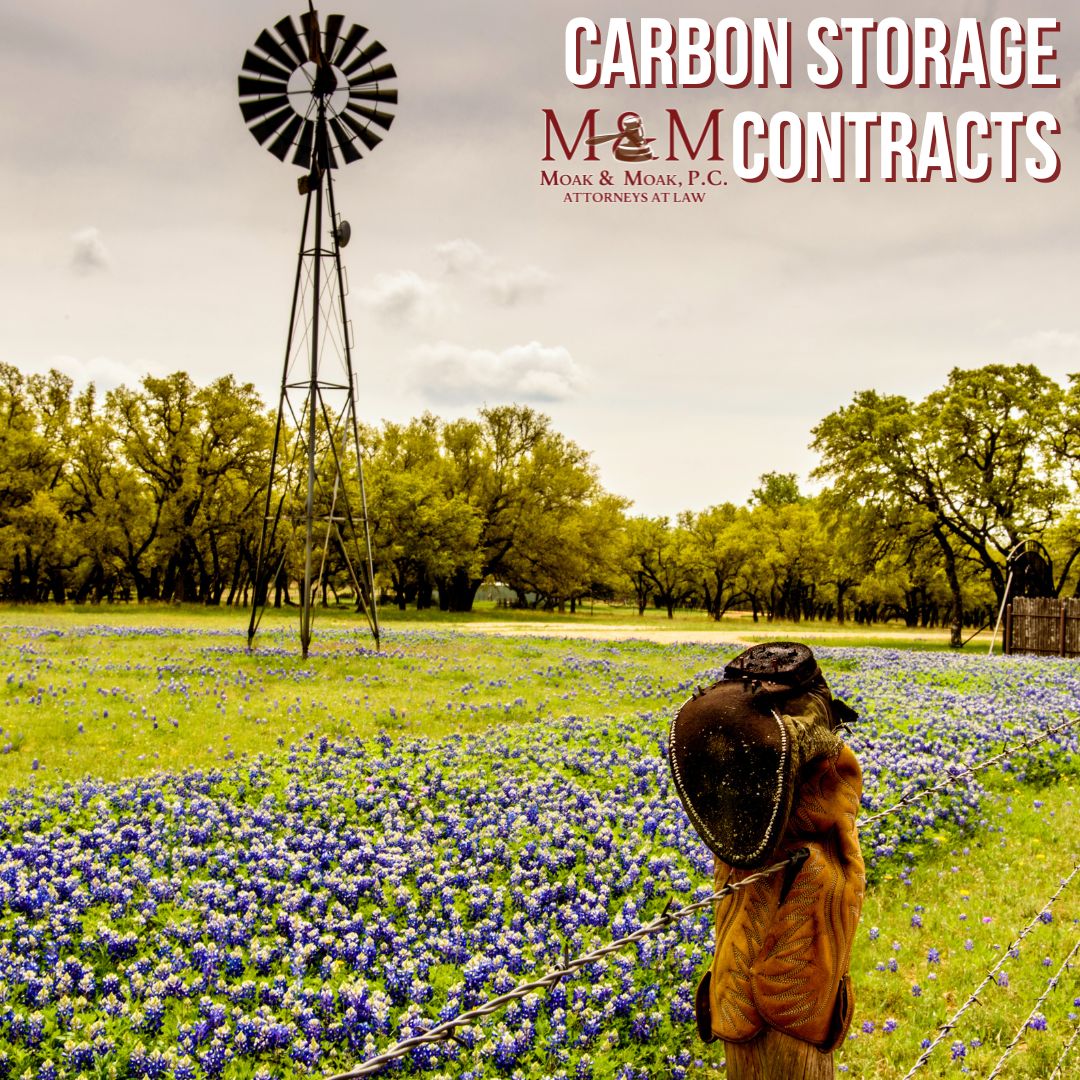Many of you are aware of real estate that is leased for solar panel and windmill fields, but if you have farm or ranch property, these are not the only options for additional revenue. Carbon storage contracts are a relatively new tool that may not interfere with the current use of the property. Additionally, there is growing evidence that solar panel and windmill fields have detrimental effects on our environment.
A carbon storage contract is an agreement where a landowner has committed property to certain practices or activities which will work to sequester additional carbon into the soil (carbon sequestration). Carbon sequestration is simply the capture and storage of carbon dioxide, rather than the emmission of it into the atmosphere where it remains. The contract defines what can and/or cannot occur on the lands in order to achieve the carbon sequestration or emission reduction goals.
Financial Benefits:
The landowner entering the carbon storage contract receives carbon credits for the activities it is undertaking. These credits are a financial benefit to the landowner that can be sold for cash. An intermediary is used to market/sell these carbon credits to companies with a high volume of carbon emmisons.
In order for the land to be useful, it will have to be able to consistently perform the activities listed in the contract to either reduce or sequester carbon.
What Type of Activities:
Activities on the property must be for either the purpose of reducing carbon emissions or for sequestering carbon, or both.
Activities can be:
– Conservation farming. These include no-till or low-till farming practices to reduce soil erosion. This is done by leaving crop residue on the surface. This type of farming means lower fuel usage, less labor, and less equipment use.
– Grass or cover crop planting. This includes crops that allows the soil to stay in place with less disruption and maintenance.
– Grazing practices. Rotational grazing that prevents overgrazing and allows waste to be mixed into the soil.
What Are The Negative Impacts:
Carbon storage contracts run with the land, similar to easements, and therefore any sale is subject to the contract. A carbon storage contract is a long-term commitment. Thus any activities committed to by the landowner should be able to be sustained for the period of time identified under the contract. The contract specifies key terms as to who is responsible for what, how long, notices and payments.
While solar panel or wind turbine field leases prevent the use of the surface for grazing cattle or goats and do not allow hunting, carbon storage contracts do not have these limitations.
The carbon storage contracts do require some form of monitoring, such as entry on the property to take measurements of the carbon in the soil and monitoring to ensure the practices to ensure capture of carbon are being followed.
It should be noted that carbon storage contracts are to reduce or capture rather than produce or generate something like oil, gas and other mineral or solar and wind leases.
If you have a property and think you might be interested in carbon storage, then you should consult an attorney to be sure that the property is suitable and help you find and negotiate with the right intermediaries.

